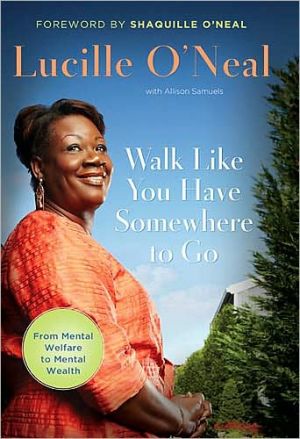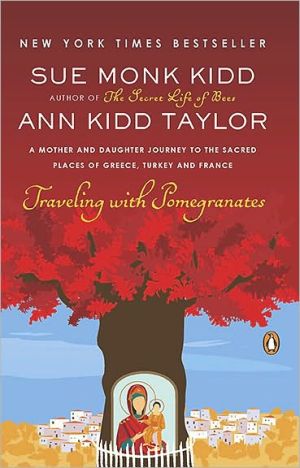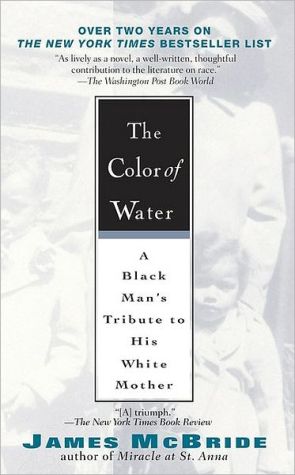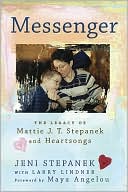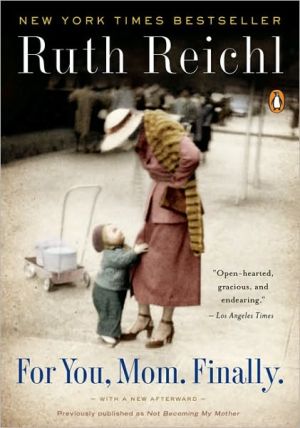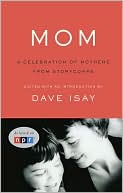Walk Like You Have Somewhere to Go
“In Walk Like You Have Somewhere to Go Lucille will take you on a 40-year journey from ‘mental welfare to mental wealth.’ You will laugh—you may cry—and in the process you will be encouraged, enlightened, and empowered.”\ —Paula White, author of Dare to Dream: See Yourself as God Sees You\ As the mother of one of the greatest athletes of all time, her journey is exceptional; but her story reveals that she is more than just “Shaquille O’Neal’s mom.”\ Lucille O’Neal is a woman you know, a woman...
Search in google:
Lucille O'Neal shares her public battles and personal struggles as a young, single mother of NBA legend Shaquille O'Neal.Lucille O'Neal would one day have it all, but not before fighting the public battles and personal demons that would threaten to shatter the very foundation of her life while taking their devastating toll along the way.Over the past 16 years, Lucille O'Neal has become one of the best-known mothers of a celebrity athlete. But behind the scenes, the mother of four has her own story, at once heartbreakingly familiar in its pain and yet wonderfully inspirational in its outcome.In this memoir, O'Neal candidly describes the pain of being an outcast and the stigma of becoming an unwed, teenage mother. Most interestingly, she candidly shares another side of fame and fortune-a side rarely revealed or admitted in public: her unexpected feelings of anger and resentment towards her son's blinding success. Publishers Weekly O'Neal's life story will garner attention because of her famous son, basketball superstar Shaquille O'Neal. Lucille was raised by strict, church-going grandparents and struggled with feeling unloved. She also had low self-esteem, in part because "I was six feet by the time I was twelve." She gave birth to Shaquille when she was 17, eventually marrying a soldier when her son was two years old. Lucille spent the next two decades mothering Shaquille and his three siblings, dealing with army life, and seeing her eldest through college years and his first years in the NBA. Lucille also struggled with drinking and unhappiness, finally coming to terms with life after her mother's death. She returned to school, divorced, and returned to faith; now she says, "I'm the happiest and most satisfied I've ever been." Some may wish for more depth and flair, but the story, like Lucille, is simple and direct. Fans and celebrity followers will gain information and insights into the star's early life, but they'll also come away inspired thanks to Mom O'Neal. Copyright © Reed Business Information, a division of Reed Elsevier Inc. All rights reserved.
Walk Like You Have Somewhere to Go\ My Journey from Mental Welfare to Mental Health \ \ By Lucille O'Neal Allison Samuels \ Thomas Nelson\ Copyright © 2010 Lucille O'Neal\ All right reserved.\ ISBN: 978-1-59555-307-2 \ \ \ Chapter One\ "Living in Confusion" \ Train up a child in the way he should go: and when he is old, he will not depart from it. -Proverbs 22:6 (KJV)\ When I stepped through the door of our three-story New Jersey home that bright Summer afternoon, I knew my secret was a secret no more. On our deep-beige, plastic-covered sofa in the living room sat my mother, Odessa, smiling pleasantly as usual, and my grandmother Cillar, who (per usual) was not smiling at all. These two women were not the best of friends. In fact, they were far from it, which explained why they were sitting on opposite ends of the sofa. But something had brought them together on this fateful evening, and I was pretty sure it wasn't high tea. The two most prominent women in my world were there to confront me about something I'd chosen to ignore. In the previous weeks my seventeen-year-old body had begun to change ever so slightly. I'd been skin and bones most of my young life, but suddenly I was putting on weight. My mornings before I departed for school were filled with constant trips to the bathroom to throw up, and nothing I ate stayed down for very long. These were all symptoms of a condition I was much too scared to even admit to myself was possible. This was 1971, not long after the end of the civil rights movement, and still a time when being young, single, and pregnant was a thing of shame for the entire family. To add to my disgrace, I'd been raised in the most Christian of households, so my embarrassment would be all the worse. How could I have sinned like that? my grandmother asked with absolutely no patience for my answer. Her disapproving face said it all. I was crushed and ashamed that day, but this is exactly how the impending birth of my oldest child, Shaquille Rashaun, was announced at my home. Though I knew his arrival would change my life forever, I never guessed in just how many mind-boggling ways.\ As I sat there that day, listening to my grandmother lash out at me for all my "sinful transgressions," I did what I often do when things became too much for me to handle: I zoned out. Why would I stay in that moment to hear my grandmother accuse me of being a ho' on wheels and a tramp and any other negative name she could think of? In retrospect, I think my grandmother was angry about a lot of things that day-things that had little to do with me. Her life hadn't exactly been rainbows and moonbeams, and I'd unwittingly provided her a perfect opportunity to unleash all that pent-up frustration on me. My mother, on the other hand, said nothing as my grandmother verbally let loose. Her pleasant facial expression and smile said to be calm and let my grandmother vent. I tried my best to comply and just sat there with my hands folded in my lap. To stop myself from crying, I bit my lip and focused on a small piece of wallpaper that had begun to peel away behind my grandmother's head.\ Many of the questions my grandmother asked me that day, she already knew the answers to. She most certainly had met my boyfriend and the father of my baby, because he'd been at the house a number of times. She even liked him, or at least she seemed to. Still, she felt it necessary to go over all the details of how I could have gotten myself in the "family way." She wanted reasons that day, but I had none for her. None that I wanted to share, that is. All I could manage to do was mumble I was sorry a thousand times, until I couldn't say it anymore and didn't want to say it again.\ We never know where the circumstances of our lives, good or bad, will lead us. Lord knows I sure didn't. I was so depressed prior to Shaquille's birth. I felt my life was essentially over before it had a chance to begin. I was seventeen years old and just finishing high school when I found out I was pregnant. How would I rebound from having a baby so early in my life with no higher education or job skills? What kind of mother would I be when I was barely able to take care of myself? These questions haunted me prior to my son's birth and sent me spiraling down into a world of self-pity and self-doubt. But in truth, I knew my self-esteem issues didn't begin with Shaquille's future entrée into the world. I'd battled with the residue of an unloving and unhappy childhood for years, which in turn caused me to look for love in all the wrong places. But thirty-eight years ago I had no idea how to deal with the many confusing thoughts and feelings running through my young mind. I just knew I was heading in the wrong direction and needed to turn around before it was too late.\ We don't often see in our childhoods many things that are blatant to us as adults. I can't keep count of the number of people who have told me they never knew they were poor growing up until they were fully grown. Honestly, I wish I'd been that clueless about my own life. I unfortunately understood very early on that I wasn't growing up in what anyone would call a "traditional family" setting-it wasn't even close. My parents divorced when I was just three years old, and that left my older brother, Roy; younger sister, Vivian; and me to be raised by my father and his family.\ The fact that my parents separated when I was very young impacted my life in ways that I can't begin to fully comprehend, not even today. That single event would go on to define how I felt-in both positive and negative ways-about the woman I would later become. Obviously, many people go through divorce and learn to deal with the aftermath of a family torn apart; however, for me and my two siblings, there were so many questions about what actually happened to our family and why. These are questions that wouldn't be answered until much later on.\ Chapter Two\ Life Ain't Been No Crystal Stair \ "For I know the plans I have for you," declares the Lord, "plans to prosper you and not to harm you, plans to give you hope and a future." -Jeremiah 29:11\ Though I was born in a little town called Dublin, Georgia, I have absolutely no memories of the Deep South or of the home where I most likely took my first steps. As soon as our parents went their separate ways in the late 1950s, my father and his family moved us by car to Newark, New Jersey. I can still vaguely recall sitting in a jam-packed car for what seemed like forever as we made our way up north. Neither my brother and sister nor I could even ask if we were there yet because we didn't know where "there" was! Looking back at how hastily we moved to our new city, it almost feels as though my father's family wanted to make sure our earliest memories of life and our mother were erased as quickly as they had been formed.\ Much later, my siblings and I would learn that we were moved to New Jersey so quickly because our mother wanted out of her marriage with our father. All I remembered during this time was that I didn't understand why our family wasn't like every other family I knew. All of the other families had a home with a mommy, a daddy, and children all living under one roof. There were always two parents, and certainly none of these families were moving to a new state to get away from each other. Nowadays it's more common than not that children grow up in a single-parent household, but this was a time in African-American life when two parents in the home was a given. How things have changed today, and unfortunately for the worse.\ My family was different. When my father, brother, sister, and I first moved to Jersey (most of my father's family already lived in New Jersey), we shared the second floor of a crowded three-story building on South Eighth Street. Our differences from other families in the neighborhood didn't end there, mind you; my grandfather's brothers and sisters and their families also lived in that big building on Eighth Street: some on the first floor, more on the second floor with us, and the rest on the third floor. It's amazing the things I can still visualize all these years later, like the elaborate sleeping plan created for all of us to fit on that cramped second floor. In all honesty, it wasn't just people that made our new home so cramped. My grandparents loved the antique pieces of the time and had a great deal of large, dark, mahogany wood furniture throughout the house, that people pay an arm and leg for today. Of course, it wasn't that expensive back then, so anyone with any type of money furnished their homes that same way. For some reason that furniture always brought a certain melancholy and sadness to the house because it was so heavy, hard, and cold. There was no way to escape it either-because it was everywhere, in the hallway, the living room, and the bedrooms.\ In fact, those pieces were so depressing to me that when I began furnishing my most recent house (or "little hut," as I like to call it), I made a point of only choosing light, mellow-colored sofas, chairs, etc.-in creams, tans, and yellow tones. Those colors always seem to calm, comfort, and relax me after a day out and about. Today, I love to complement my furniture with luscious green plants and colorful flowers. I love greenery, particularly since it was a luxury we couldn't afford when I was a child.\ Not surprisingly, our little home in New Jersey soon became so overcrowded that we eventually had no choice but to move again. We packed up all of our belongings, and this time we moved into a larger abode at 296 Littleton Avenue. In this setup, our father slept on the couch in the living room, an aunt slept on a foldaway bed in the den, and another had a small bedroom near the front of the house. My sister and I shared one bed in a very, very small room in the front of the house. When I say small, I mean shoebox tiny-we had to step outside of the room to turn around, and that's no joke. The full-size bed and mismatched tiny dresser (which my grandparents purchased from the Goodwill) that was placed in the corner took up every ounce of space. When Shaquille was born, we had to move the dresser out to fit his little crib in. As my sister and I got older, we craved our own space, but in the beginning it wasn't that bad being so close, literally and figuratively, to my sister. I was the oldest, so I could boss her around a little, and we could share things about our day that only sisters can. Having a little sister can drive you crazy, but it can also be a relationship like no other. My brother bunked near my father, and my grandparents shared the biggest bedroom in the home, all the way in the back on the second floor. Simply put, there were a whole lot of people in that house, and way too much thought had to be put into who went where.\ Yet somehow we all managed to live together without anyone suffering any bodily harm. Now, that's not to say there weren't issues-trust me, there were a whole host of them that gradually wore me out as I began to get older and long for my own room. To complicate matters, as the middle child I always felt it was up to me to keep my brother and sister in line and in check. Go figure. This was no doubt the beginning of my lifelong trait of wanting to take care of everyone I loved. I wanted to keep peace in every situation, whether it was actually possible or not. This could simply have been the pattern of any middle child in a big family, but whatever the case, the self-imposed responsibility weighed heavily on me.\ It was my job, or so I convinced myself it was, to display a calm exterior at all times at home so things could run smoothly with my grandparents, who were exceedingly strict. No ifs, ands, or buts about it, it was their way or the highway, and it was a complete waste of time to argue otherwise. I imagine my grandparents were no different from many older people of their generation, particularly African Americans, who were just fighting to stay alive in many instances. It was their generation who had witnessed firsthand that not following the rules had the potential to get you into some serious trouble. But their strictness was sometimes very suffocating to us as young kids, and it negated a certain level of warmth I think all children need to feel confident and thrive.\ I knew even back then that if I ever had my own kids, things would be entirely different. I'd give my children all the love they could handle, and then some. In fairness, now that I am older, I realize that distant love was probably the only type of love my grandparents knew how to give. In fact, it probably was how they were treated as children themselves. I can't imagine there were many occasions for hugs and kisses from their own parents at a time when African Americans were still being hung from trees and forced to work out in the fields. My grandparents were the descendants of slaves, who didn't or couldn't show affection because they feared they would become too emotionally attached to a loved one or a child who could soon be sold away. So understandably, our grandparents' attitude was that keeping us warm, fed, and safe was showing us all the love we needed.\ It wasn't enough for me.\ Chapter Three\ Man About Town \ Light dawns in the darkness for the upright; he is gracious, merciful, and righteous. -Psalm 112:4 (ESV)\ My grandparents, Cillar (Mama) and Hilton O'Neal (Papa), were like a wrestling tag team in my life and in the lives of all my relatives and anyone else who knew them. They could deliver a serious one-two punch that could blindside you and knock you out before you ever knew what hit you. Although they worked quite effectively as a pair, it was without a doubt my grandfather's hovering presence that kept us all honest and on track. To know Hilton O'Neal was to respect him. He was a man who carried himself with a purpose and a plan no matter where he was. A physically striking man at a little over six feet tall, his deep, dark, chocolate complexion was as smooth as a newborn baby's skin, and boy, could he dress. Spectator shoes, perfectly pressed zoot suits, and fedora hats were his signature pieces, and he wore them with style and pride. My grandfather was one bad brother!\ As a child, I viewed my grandfather with both awe and fear, never fully comprehending what it must have been like to be a black man full of confidence and swagger in those trying days. This was a time when African Americans were considered less than human, attacked by police dogs, and forced to sit in the back of the bus. Looking his best was the one way he could consistently show the world that he was a proud, full-fledged human being-no matter if the law disagreed. Many African-American males did the same during that time in an attempt to prove to the outside world that they were worthy of respect. It saddens me to see many of our young men today dress so sloppily, with sagging pants and an overall unkempt appearance. I often wonder if they truly understand how their ancestors, like my grandfather, took so much pride in looking their best and what it meant to them to be viewed as respected citizens. Presenting a well-kept look afforded them the chance to be at least recognized in a world where they were often dismissed.\ My grandfather also had other talents that went against the grain of what African Americans were supposed to be capable of doing in those days. Though he worked in construction during the day, laying bricks and drywalling alongside his brothers and other family members, he had a sharp mind for business and owned several properties, even a neighborhood tavern and bar. His keen business savvy meant there was always food on our table and that we never went without-even during the days of profuse poverty for blacks. While my grandfather was too humble to talk about his own endeavors or his advanced entrepreneurial skills, his middle brother, Chappell, enjoyed nothing more than sitting in a big chair and detailing the early exploits of the O'Neal family for hours on end. "Uncle Chap," as we affectionately called him, was the self-appointed griot (African storyteller) of the family, and while his tales kept us quite entertained, we weren't always certain they were completely true.\ (Continues...)\ \ \ \ \ Excerpted from Walk Like You Have Somewhere to Go by Lucille O'Neal Allison Samuels Copyright © 2010 by Lucille O'Neal. Excerpted by permission.\ All rights reserved. No part of this excerpt may be reproduced or reprinted without permission in writing from the publisher.\ Excerpts are provided by Dial-A-Book Inc. solely for the personal use of visitors to this web site. \ \
Foreword Shaquille O'Neal ixPreface xiChapter 1 "Living in Confusion" 1Chapter 2 Life Ain't Been No Crystal Stair 5Chapter 3 Man About Town 11Chapter 4 "We Are Family" 17Chapter 5 "Love, No Limit" 27Chapter 6 Can I Get an Amen? 35Chapter 7 Big Lou 41Chapter 8 School Daze 47Chapter 9 "He's So Fine" 53Chapter 10 "Tonight's the Night..." 59Chapter 11 The Little Warrior 65Chapter 12 Why They Do It 71Chapter 13 "That's the Way Love Goes" 75Chapter 14 Daddy's Home! 81Chapter 15 Losing Lucille 85Chapter 16 "Lean on Me" 89Chapter 17 "Inner City Blues" 97Chapter 18 New Marching Orders 101Chapter 19 "Been Around the World" 105Chapter 20 "The Best of My Love" 111Chapter 21 The Family That Plays Together... 117Chapter 22 "A Change Is Gonna Come" 123Chapter 23 Good Intentions 129Chapter 24 Let the Games Begin 135Chapter 25 The Emptier Nest 139Chapter 26 Eyes Wide Open 145Chapter 27 "New Attitude" 151Chapter 28 Mommy 157Chapter 29 Starting Over 165Chapter 30 "The Wild, Wild West" 171Chapter 31 "Through the Fire" 179Chapter 32 Another Test 185Chapter 33 "Never Would Have Made It" 191Epilogue: The Lord Has Brought Me a Mighty Long Way 201Acknowledgments 211The Odessa Chambliss Quality of Life Fund 217A Note from Lucille 221
\ Publishers WeeklyO'Neal's life story will garner attention because of her famous son, basketball superstar Shaquille O'Neal. Lucille was raised by strict, church-going grandparents and struggled with feeling unloved. She also had low self-esteem, in part because "I was six feet by the time I was twelve." She gave birth to Shaquille when she was 17, eventually marrying a soldier when her son was two years old. Lucille spent the next two decades mothering Shaquille and his three siblings, dealing with army life, and seeing her eldest through college years and his first years in the NBA. Lucille also struggled with drinking and unhappiness, finally coming to terms with life after her mother's death. She returned to school, divorced, and returned to faith; now she says, "I'm the happiest and most satisfied I've ever been." Some may wish for more depth and flair, but the story, like Lucille, is simple and direct. Fans and celebrity followers will gain information and insights into the star's early life, but they'll also come away inspired thanks to Mom O'Neal. \ Copyright © Reed Business Information, a division of Reed Elsevier Inc. All rights reserved.\ \
